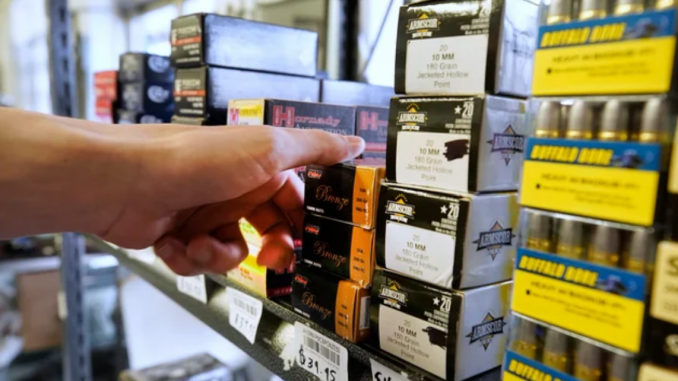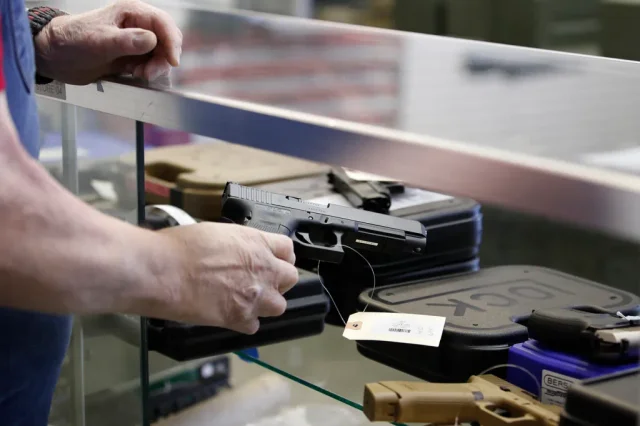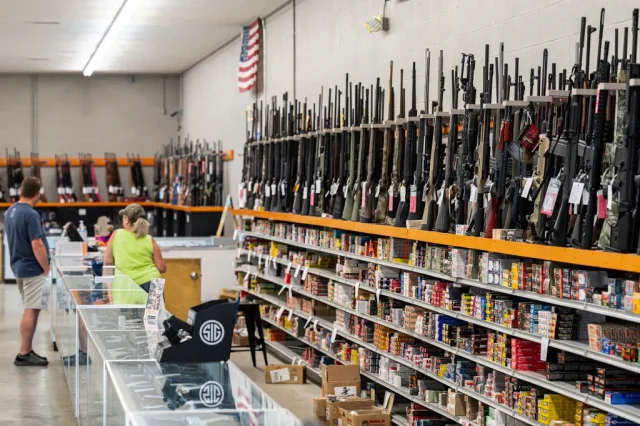
Ammunition is reportedly flying off of shelves across the country as anxious Americans — who purchased a record number of firearms during the pandemic — lock and load up in response to social unrest and an increase in violence.
The shortage is now impacting law enforcement agencies, The Associated Press reported, as ammunition shelves are bare despite manufacturers saying they are producing as much as they can.
“We have had a number of firearms instructors cancel their registration to our courses because their agency was short on ammo or they were unable to find ammo to purchase,” Jason Wuestenberg, executive director of the National Law Enforcement Firearms Instructors Association, told the AP.
Doug Tangen, firearms instructor at the Washington State Criminal Justice Training Commission, said the academy also has had trouble obtaining ammo.
“A few months ago, we were at a point where our shelves were nearly empty of 9mm ammunition,” he told the AP.
Instructors have since reduced the number of shots fired per drill to conserve ammo, which got them through several months until fresh supplies arrived, Tangen said.
The National Shooting Sports Foundation says more than 50 million people participate in shooting sports in the US and estimates that 20 million guns were sold last year, with 8 million of those sales made by first-time buyers, the AP reported.

“When you talk about all these people buying guns, it really has an impact on people buying ammunition,” spokesman Mark Oliva said. ”If you look at 8.4 million gun buyers and they all want to buy one box with 50 rounds, that’s going to be 420 million rounds.”
The FBI has also reported a record number of background checks for gun purchasers. In 2010, there were 14.4 million background checks for gun purchases; that number rose to 39.7 million in 2021, and is already up to 22.2 million through June 2021, the AP reported.
The actual number of guns sold is likely much higher, as only one background check is required for multiple weapons purchases.
“Where there is an increased sense of instability, fear and insecurity, more people will purchase guns,” Ari Freilich of the Gifford Law Center to Prevent Gun Violence told the AP.
Freilich said that like toilet paper, ammunition was one of the first things people and gun stores began stockpiling in the initial early days of the pandemic.
Wuestenberg warned that the ammunition shortage could spell danger for the possibly millions of new gun owners who need ammo for proper shooting training. Without this practice, accidents may happen, he warned.
“It’s that old adage: Just because you buy a guitar doesn’t mean you’re a guitar player,” Wustenberg told the AP. “Some have the misconception of ‘I shot this target 5 yards away and did just fine so I’m OK if someone breaks into my house.’ You’ve got to go out and practice with it.”

Jason Vanderbrink, a vice president at Vista Outdoor, which owns the Federal, CCI, Speer and Remington ammunition brands, said the companies are shipping ammo as fast as possible.
“I’m tired of reading the misinformation on the internet right now about us not trying to service the demand that we’re experiencing,” he said in a YouTube video produced for customers aimed at quashing speculation suggesting otherwise.
The AP reported that imports of ammunition are up over 225 percent over the past two years from Russia, South Korea and the European Union, according to an analysis by Panjiva Inc., an independent global trade tracking company. Analysis also showed to a lesser degree US ammo exports to countries like Australia, Israel and Belgium.
The US military is unaffected by the shortage as it makes its own ammunition, however local gun store and gun range owners are facing the brunt of the shortage.
“I’ve never seen anything like it before,” Duane Hendrix, range master of the Seattle Police Athletic Association, a civilian gun range, told the AP.
“There’s stuff we can’t get, especially rifle ammo. If you don’t have ammo for your customers, there’s no point in having your doors open.”
*story by The New York Post